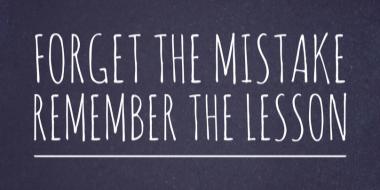Best Awards to Put on Resumes (And How to Showcase Them)
The job market is becoming increasingly competitive, and hiring managers can receive thousands of applications for one open role. You want your resume to stand out from the crowd, and adding professional awards is an excellent way to show recruiters your exceptional qualifications. In this guide, learn the top awards to put on resumes, how to include them, and realistic examples.

Include relevant awards for resumes: 5 common types
Career awards are an excellent addition to a resume and help reinforce your qualifications, skills, and seniority. However, it’s important to identify what awards to put on resumes because it isn’t a good idea to include any and all professional awards.
Strategically select awards that support the role you’re targeting and use terminology that shows the hiring manager your relevance. For example, a Gold Circle Club award is a high achievement for a sales position and is sure to catch the recruiter’s eye.
However, it’s vital to only include these awards in relevant applications, even if they’re very prestigious. A Gold Circle Club award is an amazing accomplishment, but shouldn’t be on an IT resume, even if you’re changing careers and looking for achievements to list.
Irrelevant achievements distract and confuse recruiters – but targeted, relevant awards convey your skills and make you a top choice.
Let’s get you thinking about your most relevant achievements and check out the top five most common award types.
Awards based on seniority
These professional awards are tied to seniority, so our recommendations differ based on your past or current role. Here are a few examples to get you thinking:
- Entry-level professionals: Set yourself apart by including awards from internships, part-time jobs, or volunteer work. Try to use relevant achievements, but keep in mind that relevance is slightly less important with entry-level roles.
- Management: Consider achievements that showcase leadership and communication skills, such as Team Leader of the Year or People’s Pick Award.
- Senior-level employees: Emphasize high-impact awards that display leadership and strategy skills, such as the Outstanding Senior Executive/Professional of the Year Award (OSEP Award).
Academic awards
Academic awards are an excellent way to showcase transferable skills and compensate for a lack of work experience. Many hiring managers prize previous work experience above all other qualifications, so it’s important for recent graduates to display their skills through awards, education, and volunteer work.
Consider listing various academic awards, including honors, Dean’s List recognition, being a Valedictorian, or scholarships. You can also list other achievements, like completed projects or student club memberships.
Professional awards
These awards show the recruiter your excellent work performance and efficiency. They typically highlight specific hard and soft skills or exceptional job execution.
The most common professional award is “Employee of the Month,” but keep in mind that the best way to include this award is if you receive it consistently. Hiring managers love to see a candidate who received Employee of the Month for 12 months straight – it conveys dedication, work ethic, and consistent quality.
It’s also impressive if you snagged Employee of the Month in a large enterprise. If you received Customer Service Rep of the Month in a company with 3,000 agents, it really shows your stand-out skills.
Industry awards
These awards highlight recognition from industry-specific associations and groups. Highly-targeted achievements like these are perfect for displaying your relevancy to a role.
Impressive industry-specific accomplishments speak volumes. For example, a project manager who lists a “Project of the Year” award or the “Kerzner Award for Excellence in Project Management” conveys their qualifications and value to the recruiter instantly.
Another example is an HR professional listing their “Best Innovator” award for overhauling the company’s talent acquisition process, implementing a new ATS, and improving hiring efficiency.
Community service awards
Community awards recognize commitment to community service and social responsibility. While it isn’t always obvious how these achievements apply to professional situations, they’re valuable to include.
Community awards relay transferable skills, which is vital for entry-level professionals or people changing careers. Volunteering to help your community and receiving an award for it can show teamwork, communication, time management, and problem-solving.
These achievements also showcase incredible work ethic. Dedicating your time and effort to your local community shows you want to better your town and help people, even if you aren’t being paid for it.
This attitude is also highly desired in many company cultures. Displaying your compassion and commitment to your community could show that you align with organizational values, which is also why we recommend adding these activities to your hobbies and interests.
How to Effectively List Awards on Your Resume
Have an idea of which awards you’re going to list? Now you need to know where to put awards on resumes.
We recommend you weave awards throughout your application strategically – this means placing them in your education section, work experience section, a separate awards section, and even your cover letter.
Strong, widely recognized awards should be placed toward the top of your resume. We recommend you list very important awards in your resume summary or objective so the hiring manager sees it immediately. Here’s a quick example summary line:
“Committed executive direction and winner of the Reinhardt Distinguished Career Award…”
What about your other achievements? Place them where they’re most relevant. If you have a sales award, put it in the bullet list under your sales role. If your achievement is academic, it should go in your education section.
If you have many relevant awards, we recommend you create a separate awards section in your resume for better organization. With the right resume template, it’s simple to create any additional sections you need and fit them seamlessly into your application.
A separate awards section also lets you provide deeper details about each achievement. Include additional information under each award in a bullet list, discussing how you achieved it, the events around it, and any impactful metrics.
Looking for more resume inspiration? Check out our resume samples for realistic examples of projects, achievements, and awards.
What information should you include?
You want the hiring manager to have as much information about your award as possible. They may not immediately recognize the award – and even if they do, they lack specific context around your exact situation.
Include the exact name of the award, the date you received it, and a brief description. If possible, add the purpose of the award, the competition scale, and any additional information that shows the impact and outcome you had in your field.
We recommend using the STAR method for this. This acronym stands for Situation, Action, Task, Result and is an interviewing and resume method for describing your accomplishments in great detail.
Expert Tip:
Listing awards on a resume: Realistic examples
Let’s look at a couple of realistic scenarios of placing awards on resumes.
First, let’s say a marketer possesses two academic awards they want to display in their resume. This isn’t enough to create an entire awards section, and they have sufficient work experience, so they place them in the education section to reinforce their academic achievements.
Another example is an established project manager who has won eight awards for outstanding team projects and excellent leadership. This professional creates an awards section and adds impactful details to show potential employers their great history of impressive achievements.
“Strategically select awards that support the role you’re targeting and use terminology that shows the hiring manager your relevance.”
Highlight your awards: Tips to impress recruiters
Let’s finish up with a few tips and tricks to relay your accomplishments and highlight your skills.
- Choose significant awards: If you have multiple awards, it’s best to include the most significant, powerful awards so you don’t distract recruiters with smaller achievements.
- Align awards to the job description: Read the job description carefully and see if any of your awards align with the job requirements.
- Display relevant skills and competencies: All awards show you achieved something noteworthy, but always stop and consider if your accomplishment is a relevant qualifier or if the hiring manager won’t find it useful.
- Add links to help the recruiter out: If your awards aren’t commonly known, make sure to include links to the association or institution so they have a quick reference. This ensures your qualifications aren’t lost on them and shows respect.
- Never lie: Lying on resumes can damage your professional reputation, so ensure every award you list is one you have.
List awards on resumes and showcase your achievements
You worked hard and were recognized for it, so make sure hiring managers know it. Including relevant awards is a powerful way to stand out and land that job you’ve been dreaming of. Just follow our top tips:
- Ensure each award is relevant to the industry and job description
- Place awards in a logical resume section, such as academic awards in your education section
- Include significant awards at the top of your resume in your summary
- Provide details under each award, including why you received it and strong metrics
Head over to CVwizard’s resume maker to put these tips to use. Our drag-and-drop resume builder makes it easy to build a special section for your awards and put them on display.
Make an impression with your resume
Create and download a professional resume quickly and easily



